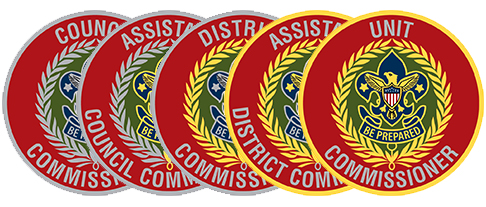NCAC Commissioners

A commissioner plays several roles, including friend, representative, unit “doctor,” teacher, and counselor.
The commissioner is a friend of the unit. Of all their roles, this one is the most important. It springs from the attitude, “I care, I am here to help,what can I do for you?” Caring is the ingredient that makes commissioner service successful. He or she is an advocate of unit needs. A commissioner who makes himself known and accepted now will be called on in future times of trouble.
The commissioner is a representative. The average unit leader is totally occupied in working with kids. Some have little if any contact with the Boy Scouts of America other than a commissioner’s visit to their meeting. To them, the commissioner may be the BSA. The commissioner helps represent the ideals, the principles, and the policies of the Scouting movement.
The commissioner is a unit “doctor.” In their role as “doctor,” they know that prevention is better than a cure, so they try to see that their units make good “health practices” a way of life. When problems arise, and they will even in the best unit, they act quickly. They observe symptoms, diagnose the real ailment, prescribe a remedy, and follow up on the patient.
The commissioner is a teacher. As a commissioner, they will have a wonderful opportunity to participate in the growth of unit leaders by sharing knowledge with them. They teach not just in an academic environment, but where it counts most—as an immediate response to a need to know. That is the best adult learning situation since the lesson is instantly reinforced by practical application of the new knowledge.
The commissioner is a counselor. As a Scouting counselor, they will help units solve their own problems. Counseling is the best role when unit leaders don’t recognize a problem and where solutions are not clear-cut. Everyone needs counseling from time to time, even experienced leaders.